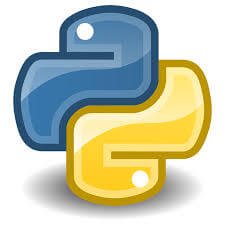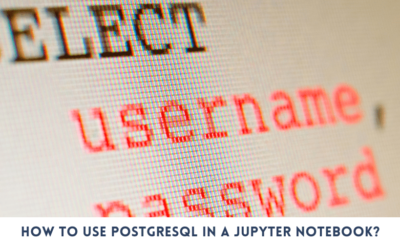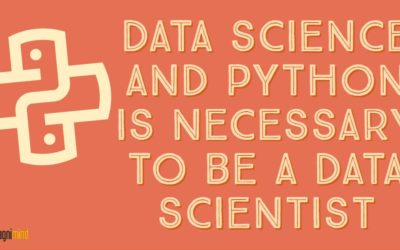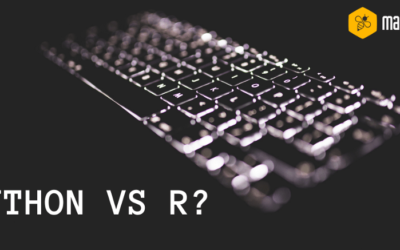As data has emerged as an integral part of business operations to attain a competitive edge, programming languages like Python and R have become extremely popular among data science professionals. With the advancements in the data science field, both Python and R programmers are becoming most sought after professionals and can enjoy a high-paying, fulfilling career. Before we delve deeper into how should you learn programming, we should give you an overview of why you should learn Python and R.
Key reasons to learn Python and R

Key reasons to learn Python and R
If you’re planning to learn programming and start with Python, here’re the reasons you should dive in without any hesitance.
- Easy to learn: Though Python is a highly powerful language, its simplicity makes it one of the most preferred languages among aspiring programmers.
- Data science: Python is the language of choice of a huge number of data scientists. Though private researchers and academic scholars have been using the MATLAB language, the scenario started to change with the emergence of Python numerical engines like Matplotlib.
- Machine learning: This is one of the biggest reasons to start with Python when you’re planning to learn programming to step into the field of machine learning. If you want a pet project in machine learning or just wish to play around it, Python is the only prominent language that makes it easy.
- Widely used: Python is used in a wide range of software industries and packages. For example, it powers Reddit, Quora, Google’s search engine, Dropbox, just name a few. As a skilled Python programmer, you may be able to grab a job at one of these giant companies.
- An object-oriented language: A solid grasp of the basics of Python can help you migrate to any object-oriented language of your choice as you’d only need to learn the new language’s syntax.
- Huge community: Whenever you’re trying to learn programming, a robust community becomes your biggest asset. Thanks to its vast community, you’re most likely to find the answers to any of your Python related queries in minutes.
- Professional growth: Python is growing pretty fast and it makes sense to start your journey to learn programming with this language. Once you become an expert, you can not only get a job quickly but will be able to accelerate your career growth. And Python developers belong to the league of highest paid developers, especially in the fields like web development, data science, and machine learning.
R programming language is specialized for statistical computing and was designed by statisticians. With the advancements in technology, the data captured by businesses has become highly complex, and R has become the most preferred language among professionals need to analyze data. If you’re still thinking of why you should learn R, here’re some key reasons that you can consider.
- A powerful scripting language: R can handle complex, large datasets and is a great language to use for resource-intensive simulations.
- Data visualization: Data visualization is considered to be easier with R as it comes with a lot of useful tools and built-in functionalities which make performing certain tasks more straightforward.
- Statistical packages: When it comes to statistical packages, R is absolutely free. All you need to do is download it and get started. On the other hand, software like SAS, STATA, and SPSS can cost you heavily for a license.
- Robust statistical community: R is supported by a solid widespread community which maintains lots of user groups that allow you to learn and exchange ideas.
Since R is extremely flexible, both as a programming language and a statistical package, its usages continue to increase as a reliable tool for an array of statistical computations.
If you hold limited programming language or are planning to learn programming, familiarizing yourself with languages like Python and R can prove to be the best initial step in advancing your career.
Different approaches to learn programming

Different approaches to learn programming
If you’re planning to learn programming, both Python and R both can greatly help you in taking your career to the next level. When it comes to learning these languages, there’s a wide range of resources available. It actually comes down to the learning method that suits you the best. Here’re the most popular resources from which you can take your pick based on your preferences.
Online Resources
Whether you like a hands-on approach or a textbook approach or a lecture hall approach to learn programming, you can find it online. Courses revolving around hands-on approach usually include projects, lessons, and quizzes to help you learn Python and R. In general, with a free account you can access interactive lessons and exercises, but a pro account is required to practice with project challenges and quizzes. There’re some websites that are considered goldmines of articles, tutorials, and documentation on programming languages. These are usually free resources and can greatly help you in learning Python and R, regardless of whether you’re a beginner or looking to learn complex topics. You can also learn programming by opting for MOOCs (massive open online course). Usually, there’re no entry requirements for MOOCs and you can participate regardless of your financial circumstances or where you live. It’s important to note that because of the large number of people attending MOOCs, you’ll usually receive support from different communities of educators, as well as other learners. And your progress on learning Python and/or R might be assessed through computer-marked tests or peer-reviewed written assignments, rather than by tutors. You can also use GitHub to learn programming through an exploratory approach. However, this method is ideal for people who’ve some experience in languages. Anyone can use this centralized repository to house and maintain code. And you can find lots of Python and R projects which are available for exploration. GitHub can be a great resource if you’re looking for a guide that offers a comprehensive overview of different Python and R concepts, from debugging to installation to writing documentation.
A Programming Bootcamp

A Programming Bootcamp
If you don’t want to take the online or self-learning route, joining a programming bootcamp seems to be your best bet. These bootcamps enable participants to focus on the most crucial aspects of programming and apply the new skills to handle real-world problems. Let’s have a look at why programming bootcamps have become one of the most sought after avenues to learn programming.
- High-impact learning: Unlike other approaches to learn programming where you some of the aspects you learn may not be relevant in the present business world, programming bootcamps only teach the skills that are most relevant in the real world. These programs exclusively focus on the skills that the learners will need to become successful programmers in the professional world. In addition, the duration of these bootcamps is relatively shorter than other avenues to learn programming, which is ideal for people who want to gain programming skills to become employable within a short time frame.
- Secure Return on Investment: When it comes to attending a bootcamp to learn programming, it’s important to remember the old adage – you get what you pay for. Programming bootcamps may seem to be a little expensive but then you need to consider that you’re likely to get a nice job soon after you complete the program. In addition, most of the bootcamp organizers offer job assistance, so your investment remains secure to a great extent.
- Immersive learning: People often get stuck along the way without great support and give up eventually. In a bootcamp, if you get stuck somewhere, instructors are readily available to help you out. In addition, if you choose online or self-learning approaches to learn programming, you’ll be missing out on the additional features offered by a bootcamp. These include presenting in front of a group, pitching ideas, interviews with potential employers etc.
Regardless of whether you want to learn Python or R in a bootcamp, you should always keep in mind that the more effort you invest in the program, the more you’ll get out of it. Most of the students who do well in a bootcamp keep programming outside class hours, and thus you’re expected to. You should also understand that importance of programming languages in the professional world will keep on changing. The crucial part is adapting how programmers look at problems and think about those. Once you learn this, you’ll be able to learn any programming language you want.
Conclusion

Conclusion
Both Python and R can be learned relatively easily as long as you’re motivated and have a clear set of goals in mind based on your background. For instance, if you’re coming from a statistical background, R should be the best option for you. If your goal is to become a data science professional, starting your journey to learn programming with Python should be ideal for you. At the rate the demand for skilled programmers is increasing, now seems to be the best time to learn programming. So, assess the above-mentioned approaches, pick one that suits you the best, and start learning to gain a competitive edge over others.



